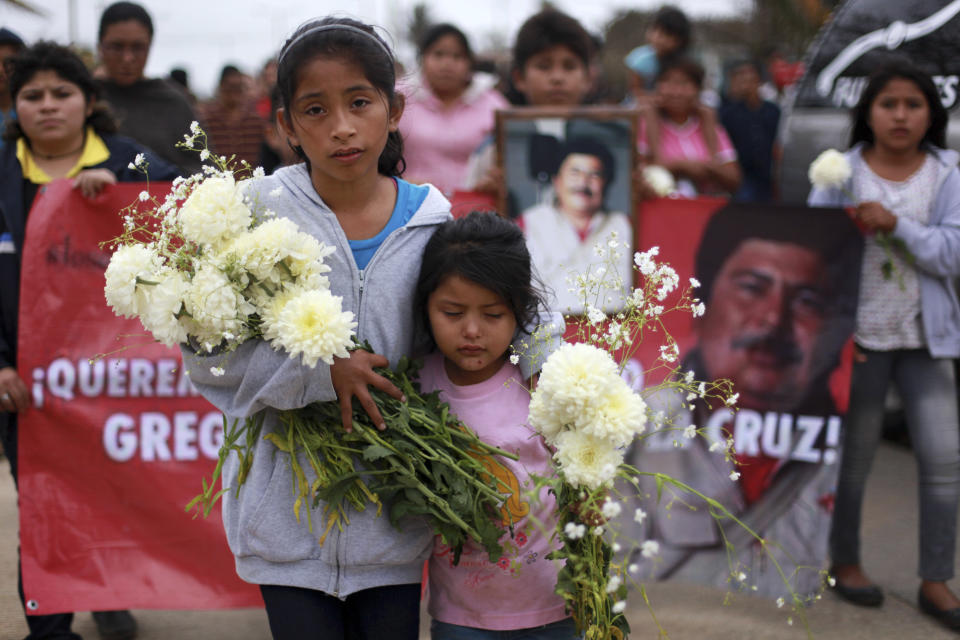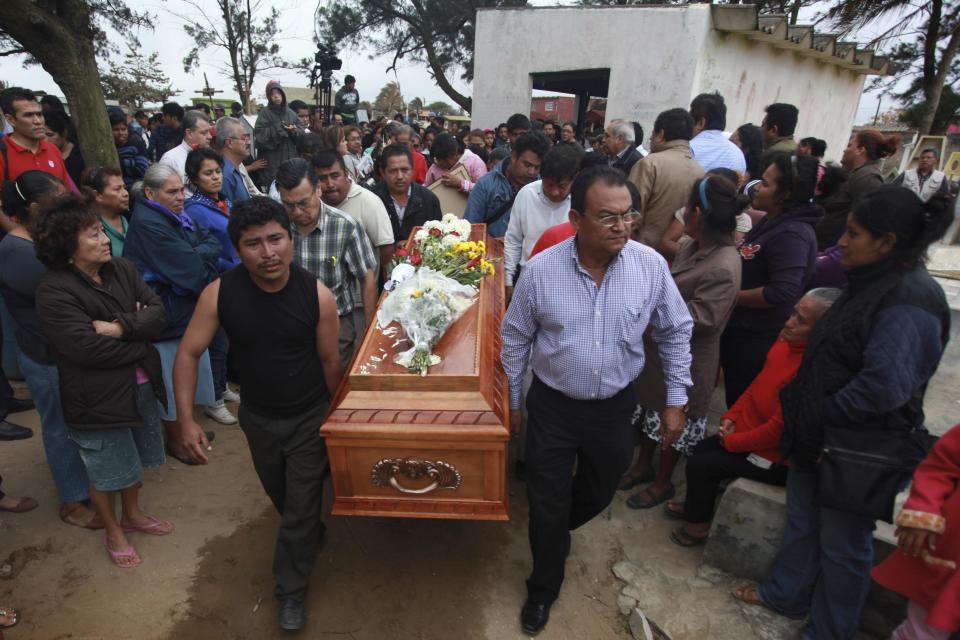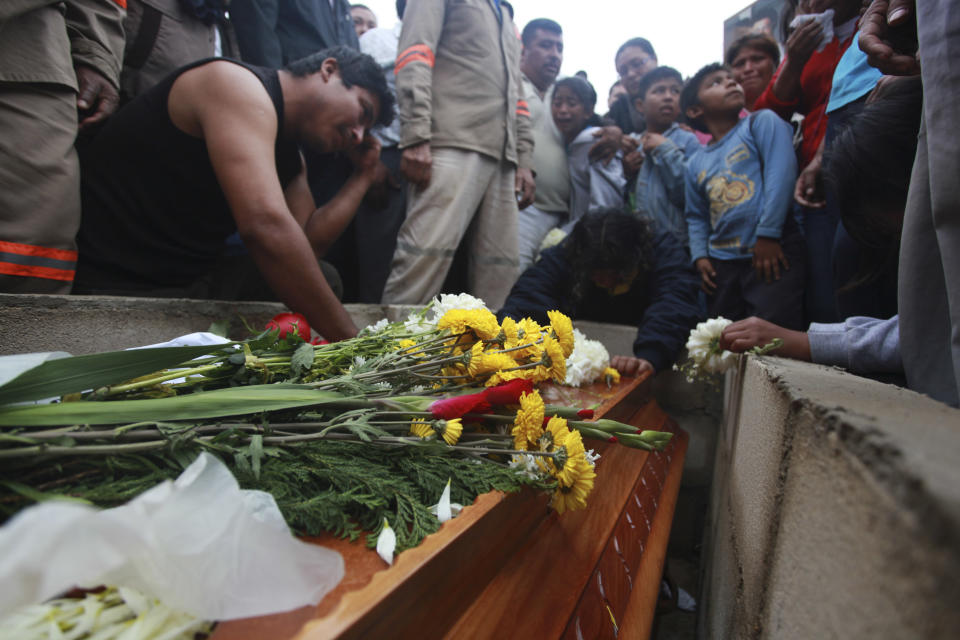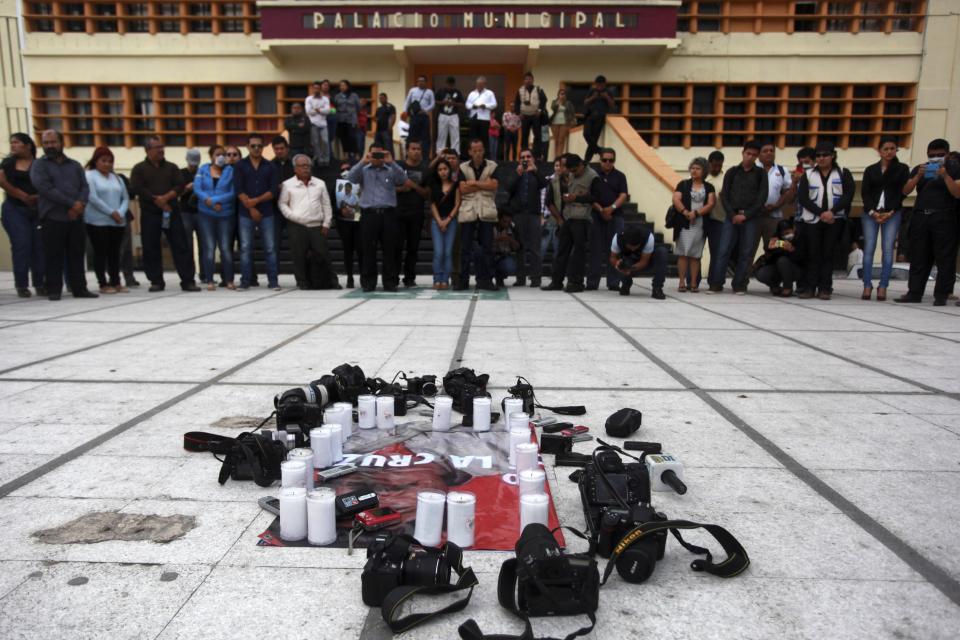Few believe account of Mexican reporter's slaying
COATZACOALCOS, Mexico (AP) — Officials in the Gulf coast state of Veracruz jumped to the conclusion that a journalist found slain this week was killed in a personal vendetta, angry colleagues said Wednesday, calling for a thorough investigation into potential ties between the reporter's work and his murder.
Many pointed to the fact that Gregorio Jimenez's body was discovered alongside the corpse of a union leader whose kidnapping was the topic of two of the reporter's stories.
Jimenez, a police beat reporter for the newspapers Notisur and El Liberal, wrote a short, relatively straightforward article shortly after the disappearance of Ernesto Ruiz Guillen, who was kidnapped in January during an assembly of the Workers Confederation, Mexico's largest labor union. He followed that with an article noting that little was being done by authorities to investigate the kidnapping.
Last week, at least five gunmen forced Jimenez, 42, out of his home in the city of Coatzacoalcos and drove him away in an SUV.
Veracruz state authorities said Jimenez's body was found Tuesday in the backyard of a house in the nearby town of Las Choapas, along with the union leader's body and the corpse of a taxi driver whose name wasn't released.
Hours after Jimenez's body was discovered, the Veracruz state prosecutor told reporters that investigators' dominant theory was that Jimenez's killing was ordered by an acquaintance with a personal vendetta.
Veracruz state spokeswoman Gina Dominguez said authorities believe Teresa Hernandez, who owns a cantina in Coatzacoalcos, threatened Jimenez three months ago after a falling out between her son and his daughter, who had dated. Four men arrested Tuesday on suspicion of participating in the reporter's killing told investigators that Hernandez paid them to kidnap and kill him, Dominguez said.
Jimenez is at least the 12th journalist slain or missing since 2010 in the Gulf coast state. In at least three of the cases, Veracruz state authorities swiftly attributed the killings to personal disputes, outraging the victims' colleagues and press freedom advocates who say state officials don't thoroughly investigate killings.
Dominguez acknowledged Jimenez had written about Ruiz Guillen's kidnapping and said authorities had not discounted alternate motives for his killing.
"We're looking at the stories that have to do with Ruiz Guillen," Dominguez said. "The investigation isn't closed. His work is relevant."
Journalists expressed skepticism that a personal dispute could have led to Jimenez's slaying.
"I don't believe in what the government says because Gregorio was not one to get into fights. He was a kind, humble person," said Elizabeth Avina, who works for the newspaper El Heraldo de Veracruz.
Gregorio Hernandez, another colleague of Jimenez's, said the slain reporter often wrote about crime even though his byline didn't appear on his stories.
"There has to be a serious investigation because he often looked into disappearances, crimes and kidnappings," Hernandez said.
Journalists throughout Mexico have organized protests since Jimenez disappeared to demand authorities consider retaliation for his work as a motive, and find those responsible.
"We want justice. We want authorities in charge of solving the case to take responsibility. We don't want scapegoats," said Victoria Rasgado, a reporter with Diario del Istmo, a Veracruz newspaper.
___
Associated Press writer Adriana Gomez Licon in Mexico City contributed to this report.





